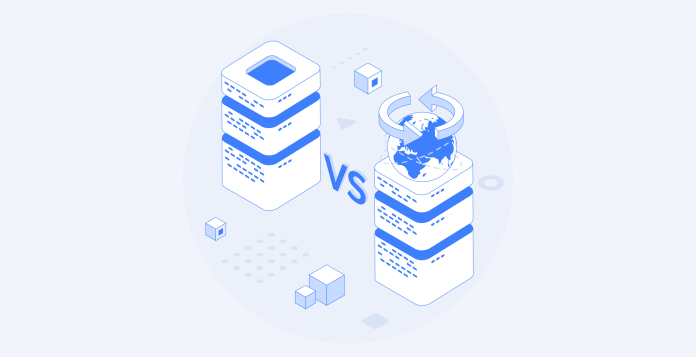In the ever-evolving landscape of online security and data accessibility, the use of proxies has become indispensable. Among the myriad of proxy options, static and rotating proxies stand out, each offering unique functionalities that cater to different user needs. Delving into a comprehensive comparison between Static and Rotating proxies unveils their distinct characteristics and the scenarios in which they excel.
Unveiling Static Proxies
Definition and Functionality
Static proxies, or dedicated proxies, allocate a fixed IP address to a user, maintaining consistency throughout the session. These proxies serve as a reliable intermediary between the user and the internet, ensuring stability and reliability for specific tasks.
Advantages
- Consistent Connectivity: Static proxies, alongside an SD-WAN overview, offer stable connections vital for tasks requiring a fixed IP address.
- Enhanced Security: With a dedicated IP, the risk of being blocked or flagged due to multiple users sharing the same IP is significantly reduced.
- Faster Speeds: As there’s no need for frequent IP changes, static proxies often provide faster speeds and lower latency.
Use Cases
- E-commerce Management: Managing multiple accounts or conducting automated tasks on e-commerce platforms benefits from the consistency provided by static IPs.
- SEO Tracking: Continuously monitoring search engine rankings and analyzing SEO data requires consistent and uninterrupted access.
Unraveling Rotating Proxies
Definition and Functionality
Rotating proxies, also known as dynamic proxies, operate with a pool of IP addresses that change at specified intervals or per request. These proxies offer versatility and anonymity by cycling through different IPs.
Advantages
- Enhanced Anonymity: Rotating proxies provide increased anonymity by frequently changing IPs, making it challenging for websites to track user activity.
- Evading Restrictions: They help bypass IP bans or anti-scraping measures by presenting different IPs for each request.
- Scalability: Rotating proxies accommodate high-volume tasks by providing a wide range of IPs, preventing detection and allowing efficient data extraction.
Use Cases
- Web Scraping: Extracting data from websites without triggering security measures benefits significantly from rotating proxies’ IP rotation capabilities.
- Market Research: Gathering diverse data sets from multiple sources without detection or being blocked.
Making an Informed Choice
Considerations
- Task Requirements: Assess whether a consistent IP (static) or varied IPs (rotating) aligns better with the needs of your activities.
- Budget and Scalability: Evaluate the cost-effectiveness and scalability required for your project, considering the pricing models associated with each proxy type.
- Target Websites or Services: Some platforms or services may have specific requirements favoring either static or rotating proxies.
Conclusion
Static proxies and rotating proxies cater to different needs based on the requirement for consistency, security, anonymity, and scalability. While static proxies offer stability and reliability, rotating proxies provide enhanced anonymity and adaptability. Understanding the strengths and applications of each proxy type empowers users to make informed decisions, optimizing their online activities effectively and securely.







